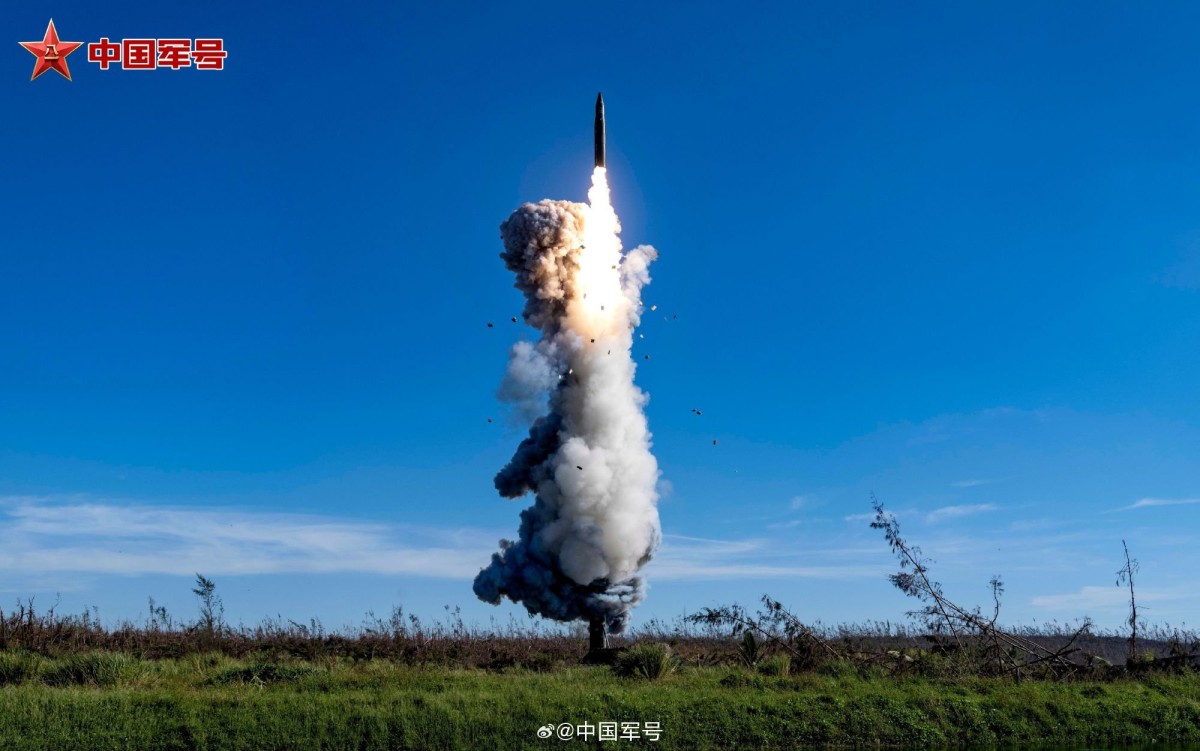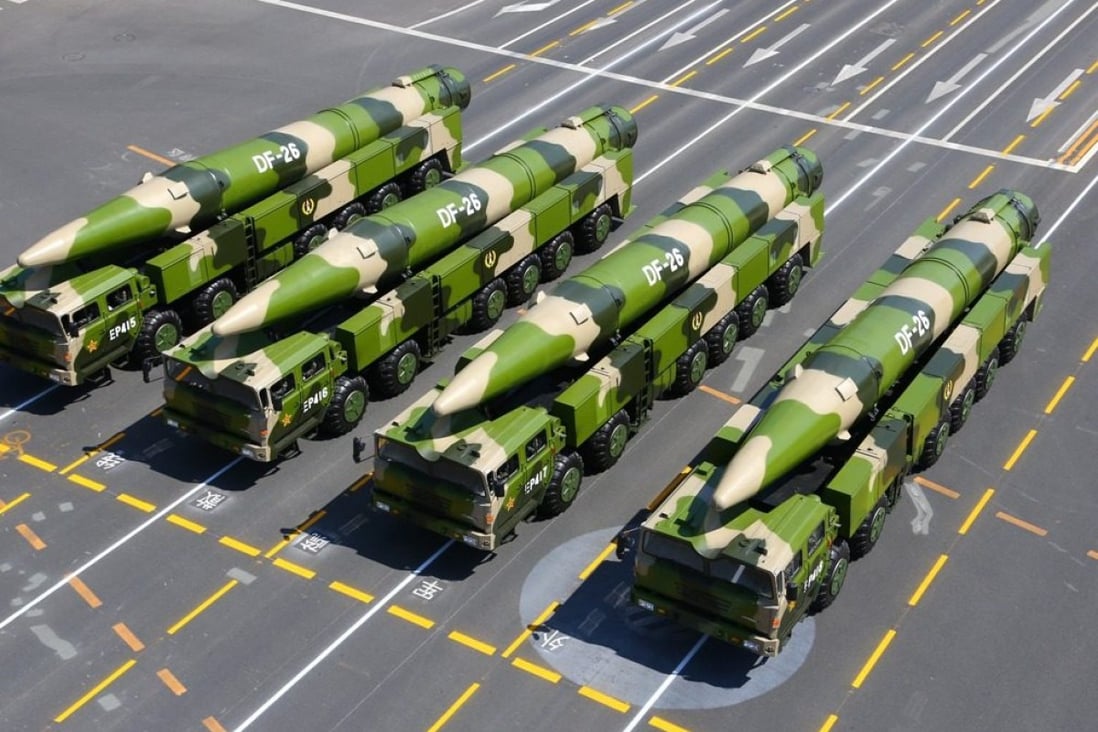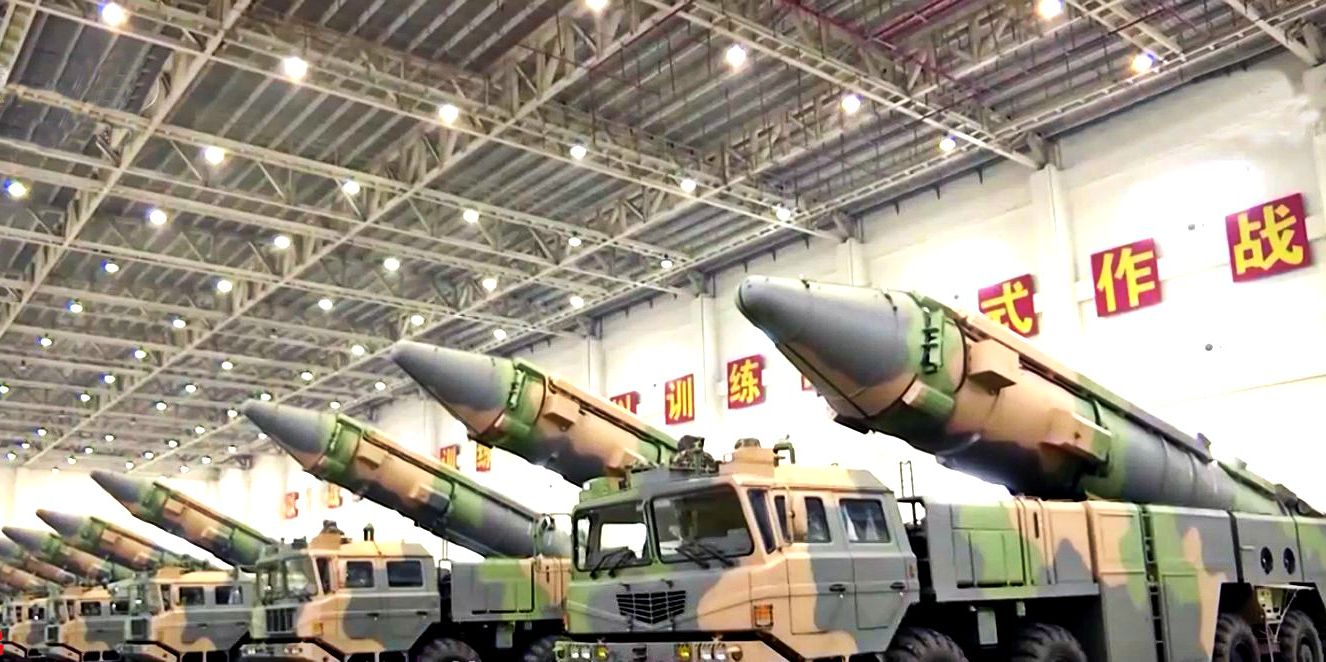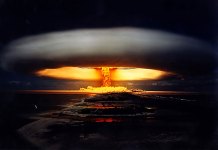On October 19, Chinese President Xi Jinping called on the People’s Liberation Army (PLA) Rocket Force to enhance its “deterrence and combat capabilities” amid ongoing corruption scandals that have shaken the force and raised concerns about its operational integrity.
During an inspection of one of the Rocket Force brigades, Xi noted that the force must fully meet the responsibilities entrusted to it by the Communist Party of China (CPC) and the Chinese people.
Xi, who also serves as general secretary of the CPC Central Committee and chairman of the Central Military Commission (CMC), urged the troops to adapt to the evolving dynamics of modern warfare.
He said that it is also important to focus on changing combat missions, potential opponents’ strategies, and the operational environment.
According to Xi, the Rocket Force must refine its skills in conventional warfare while also developing new tactics and capabilities with advanced equipment. The goal, he said, is to ensure the force remains effective in both traditional and emerging combat scenarios.
This inspection comes just a month after the PLA Rocket Force conducted its first intercontinental ballistic missile (ICBM) test in 44 years, sending a missile into the Pacific Ocean. The test underscored China’s efforts to bolster its strategic deterrence capabilities amid rising global tensions.

Xi’s visit included inspections of both equipment and training processes. Although the specific brigade he visited was not disclosed, the Chinese Ministry of Defense noted that the brigade has a history of more than 50 years and a distinguished record of service.
In a statement issued by China’s Ministry of Defense, it was revealed that Xi received a detailed briefing on the brigade’s operations and delivered a speech emphasizing the need for continued political guidance within the force.
He called for the integration of political and military work to ensure that the Rocket Force remained aligned with the CPC’s directives.
China’s ongoing military modernization puts the PLA Rocket Force at the forefront of its strategic defense efforts. Xi’s statements highlight the leadership’s dedication to strengthening the Rocket Force’s ability to deter potential threats and carry out essential missions amid a rapidly evolving global security landscape.
The People’s Liberation Army’s Rocket Force
Established in 2015 as part of President Xi Jinping’s comprehensive reform of the People’s Liberation Army (PLA), the PLA Rocket Force (PLARF) has quickly become a central pillar of China’s national defense strategy.
The PLARF is instrumental in maintaining China’s strategic deterrence capabilities. It is tasked with overseeing the country’s nuclear arsenal.
According to China’s 2019 defense white paper, while the PLA’s overall size has been reduced, the PLARF has experienced significant growth, reflecting its vital role in safeguarding national sovereignty and security.
Chinese leadership perceives the PLARF as an essential component in achieving a “strategic balance” with key global competitors.
The PLARF is charged with several critical missions, including strategic deterrence, disabling enemy air defenses, and preventing hostile forces from encroaching on Chinese territory—whether on land, in the air, or at sea.

This includes a broad geographic focus extending from Taiwan and the South China Sea to potential threats posed by neighboring nations like India and strategic rivals such as the United States.
Last year, a senior US Navy commander pointed out that the People’s Liberation Army Rocket Force (PLARF) represents the most significant threat to the US Navy in the Indo-Pacific region.
Admiral Samuel Paparo, who holds the rank of four-star admiral in the United States Navy and currently serves as the commander of the United States Indo-Pacific Command, further said that the US Navy is continuously engaged in developing tactics, techniques, and procedures to counter the threat posed by China’s Rocket Force on a daily basis.
The PLARF’s advanced missile systems, often dubbed “carrier killers,” are specifically designed to target and strike US naval aircraft carriers.
Moreover, the force’s nuclear capabilities have seen a steady expansion over the years, with projections indicating a potential doubling of its size by 2030.
The Stockholm International Peace Research Institute estimates that within the next decade, China’s intercontinental ballistic missile (ICBM) stockpile could surpass those of both Russia and the United States.
Recent reports indicate that China has been increasing its nuclear warhead count, with estimates suggesting a total of around 500 by 2023.
This anticipated growth in missile capabilities was underscored last month when China conducted a rare ICBM test, marking its first in 44 years.
The missile was launched into the Pacific Ocean, serving as a clear demonstration of the Rocket Force’s readiness amid the increasing international scrutiny surrounding China’s nuclear developments.
Rocket Force plagued by corruption scandals
President Xi Jinping’s latest remarks, calling for enhanced combat capabilities, come at a time when the force is facing internal challenges. Several high-ranking officials and generals have been removed from their positions amid corruption investigations.
In recent years, the People’s Liberation Army Rocket Force (PLARF) has been thrust into the spotlight due to a series of corruption scandals and leadership purges. Since 2023, aggressive anti-corruption probes have targeted Chinese officials within the Rocket Force and those connected to its operations.
Many have been swiftly dismissed from their posts, reflecting a broader crackdown that highlights political insecurity at the highest levels of Chinese leadership.
Despite Xi’s substantial investments in the PLARF’s growth and modernization since 2010, these scandals underscore the deep-rooted issues plaguing the military wing.
The removal of top officials has raised concerns about the Rocket Force’s long-term stability and effectiveness. Among the most notable figures implicated this year is Xiao Longxu, a prominent missile scientist and former chief engineer at the Rocket Force’s top research institute.

He was expelled from the Chinese People’s Political Consultative Conference, a key advisory body, in a clear signal of his fall from grace. Another key case is that of Wei Fenghe, a former Rocket Force commander and one of two ex-defense ministers now under investigation for corruption.
In June 2023, the force faced a major upheaval when Commander Li Yuchao, Commissar Xu Zhongbo, and their deputies, Liu Guangbin and Zhang Zhenzhong, were all dismissed.
Speculation about their removal points to allegations of embezzlement and espionage, with rumors suggesting that Li Yuchao’s son leaked sensitive government information to the United States while studying abroad.
In July 2023, the mysterious death of Wu Guohua, a former deputy commander, further fueled controversy, with some speculating that his death, officially attributed to illness, may have been a suicide related to the ongoing investigations.
Nonetheless, the anti-corruption campaign has expanded, no longer focusing solely on the Rocket Force but also raising questions about the loyalty and integrity of the broader People’s Liberation Army and the Chinese Communist Party itself.
- Contact the author at ashishmichel(at)gmail.com
- Follow EurAsian Times on Google News




